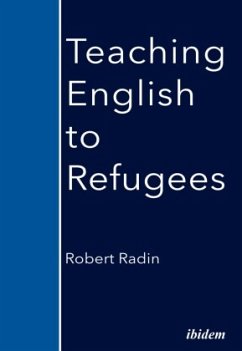"Robert Radin's Teaching English to Refugees does it all, weaving together memoir, philosophy of language, social-justice advocacy, and graphic narrative into a haunting meditation on what can happen when the least powerful among us escape oppression and seek refuge in the United States. With the unerring precision of both linguist and poet, Radin tells a story of teaching English to refugees from such troubled areas of the world as Iraq, Somalia, and the Democratic Republic of Congo. As he struggles to find ways to reach across languages and cultures so disparate they do not even seem to be part of the same world, a quieter story plays out-his own, where multi-generational Jewish legacies get compressed into incisive and singular moments of prose you won't soon forget. Through it all, the voices of his Muslim students-haltingly at first, and then with increasing confidence-carve out a space for being all their own. Like Jenny Erpenbeck's Go, Went, Gone, this spare, unsparing, and intrepid book takes a close, unwavering look at some of the hardest stories of our times until nothing is what it seems at first and students become teachers to us all."-Katharine Haake, Professor of English, California State University Northridge, author of The Time of Quarantine and That Water, Those Rocks
"Radin, who lives in Western Mass and is the director of citizenship and immigration services at social service agency, writes of teaching adult learners from Iraq, Eritrea, Bhutan, and the Democratic Republic of Congo, people who have fled violence and upheaval to make new lives in the U.S. His lessons, on kitchen tools, laundry, driving, serve as scaffolding for exploring larger questions of language and meaning. "Words are tools, not the indications of the ultimate nature of reality." We are introduced to his students, their specific triumphs and hardships, their moments of joy and fear, and he writes with candor of his own Jewish upbringing and gestures with grace and specificity at painful moments and memories in his own history. The book braids philosophic inquiry and intimate personal narrative examining what it means to teach, to learn, to speak, to read, the power language, and its limits."-Nina MacLaughlin, The Boston Globe, 25.03.2021

